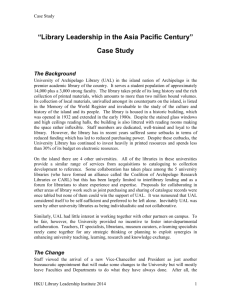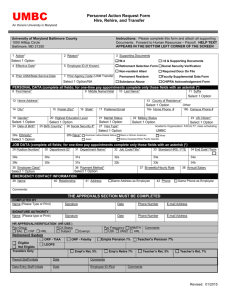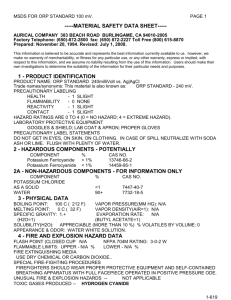Synpotic presentation on the retirement fund problem by LSU
advertisement
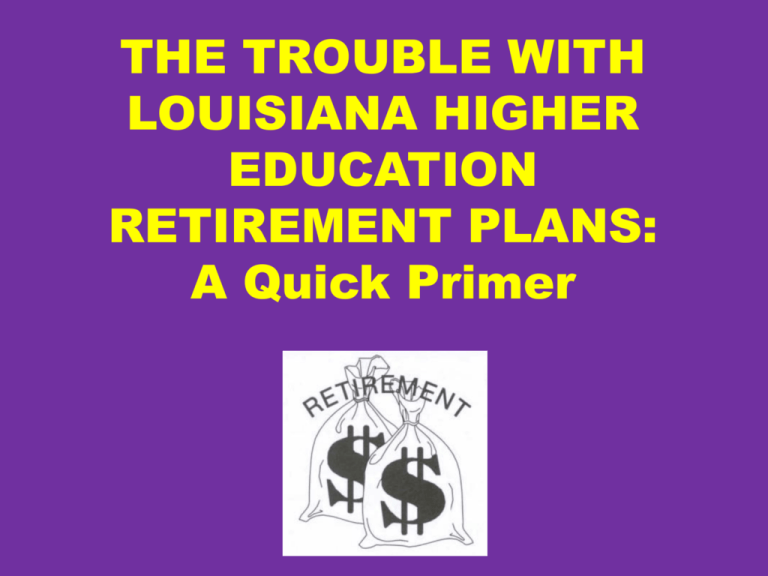
THE TROUBLE WITH LOUISIANA HIGHER EDUCATION RETIREMENT PLANS: A Quick Primer PROBLEM ONE UNFUNDED ACCRUED LIABILITY (“UAL”) A large debt resulting from underfunding of the defined benefit plan Imposed on ORP members at the inception of the ORP plan Represents a de facto transfer or charging of state operating expenses to employees Also affects TRSL (“defined benefit”) participants, although that impact is not immediately visible on pay stubs IMPACT OF THE “UAL” For ORP members: Employees contribute 7.95% Employer (LSU) contributes 23.7% Total contribution is 31.65% Of LSU’s contribution, only 5.97% reaches employee accounts Of the total contribution of 31.65%, only 13.92% reaches employee accounts (43% of the amount paid) Employer contribution demands are spiraling upward IMPACT OF “UAL” ON TRSL PARTICIPANTS A circa $10,000,000.00 charge to LSU (and proportional charges to all other universities) by way of contribution to the UAL. That money could be used for raises, facility improvement, cultural activities, research travel, awards, professorships, or a thousand other good purposes. This charge is likely to grow, and grow exponentially, in coming years. MORE UAL IMPACT ON TRSL PARTICIPANTS Although it is not yet likely, it is not inconceivable that the UAL could expand to proportions such that the TRSL defined benefit plan could become insolvent. In that case, retirees’ pensions would be in jeopardy or might be affected by federal intervention. PROBLEM TWO: LACK OF CHOICE ORP began as the only alternative to a plan that required a ten-year vesting period in an institution with mobile faculty and six-year tenure windows ORP participants have no control over their choice of vendors or fund offerings Auditing of the ORP is done by private, contract auditors answerable to the state executive branch The lack of independence from state agencies is of questionable legality PROBLEM THREE: GOVERNANCE ORP is managed by TRSL but ORP members are not allowed to vote in TRSL elections (for Board members) Higher education has only one Board representative of fifteen; the others are from K-12 or are political appointees TRSL management testified AGAINST faculty governance delegates at legislative hearings Some state lawmakers want substantial payment requirements to exit TRSL PROBLEM FOUR: COMPARISON TO BEST PRACTICES No other comparable university or state deploys such a governance system Comparable states and institutions offer higher-educator-pertinent retirement systems Entailing of UAL on new plan (ORP) was of questionable legality Uncertainty regarding status of plan with respect to Social Security exemption PROBLEM FIVE: CUSTOMER SERVICE Lack of vendor expertise Selection of vendors by groups other than clients Poor vendor customer service Difficulty in obtaining data Poor web sites Confusing statements, interfaces, and documentation THE GOOD NEWS Solutions and Initiatives

![Update on and summary of the retirement plan problem for the LSU A M Faculty Senate in PowerPoint format [January 2014]](http://s2.studylib.net/store/data/014961957_1-f4cc24967ba8195decc0512e8a320398-300x300.png)
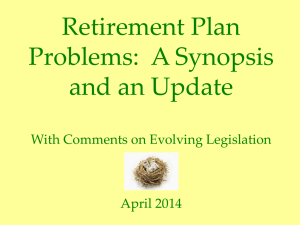
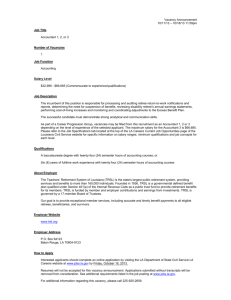
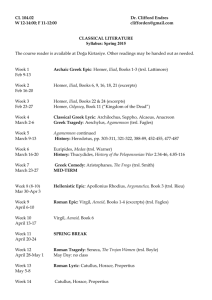
![TRSL presentation from LSUnited-sponsored retirement forum: PowerPoint format [February 2014]](http://s2.studylib.net/store/data/014961958_1-0c7ee80e51f006c9d3714b09f369fc64-300x300.png)
